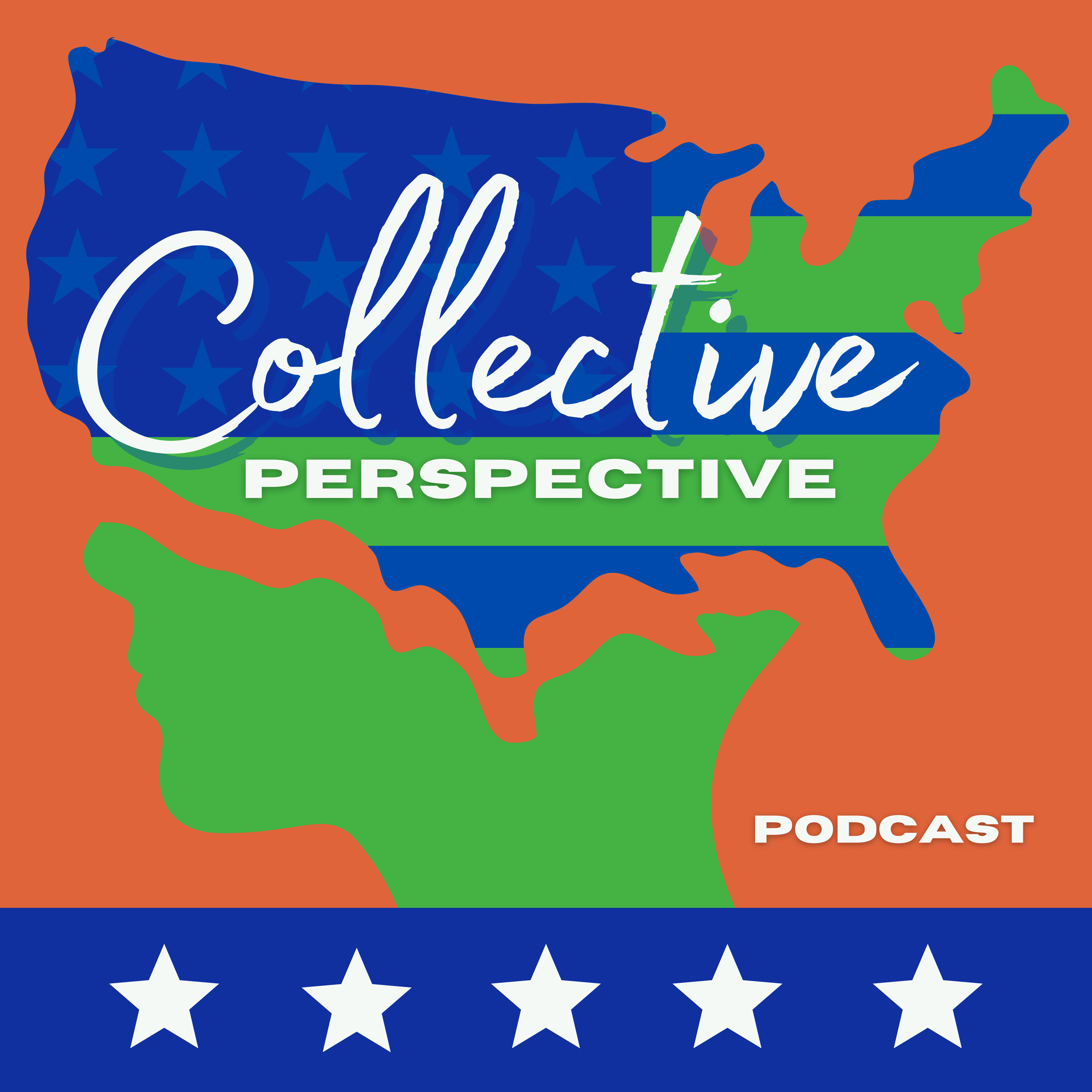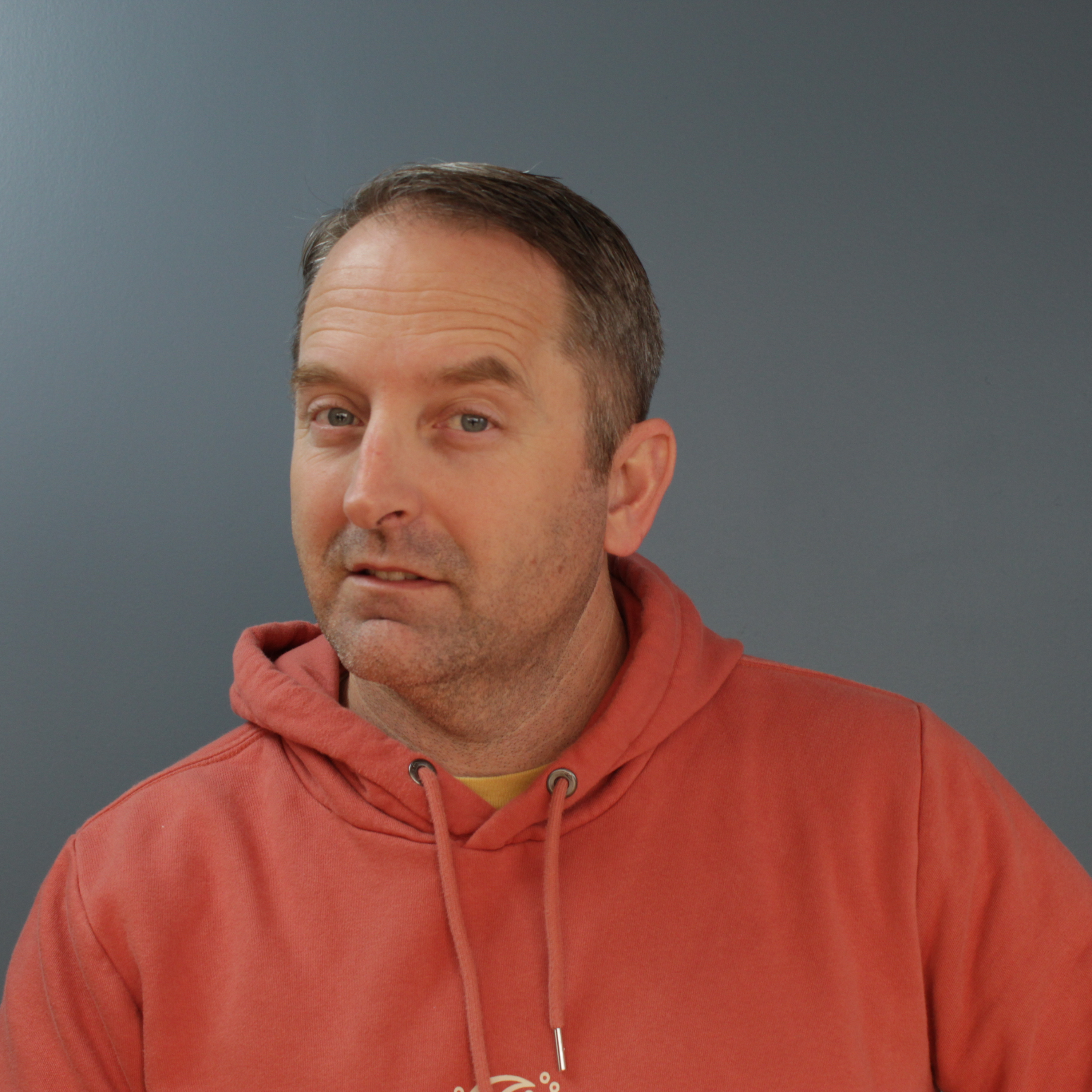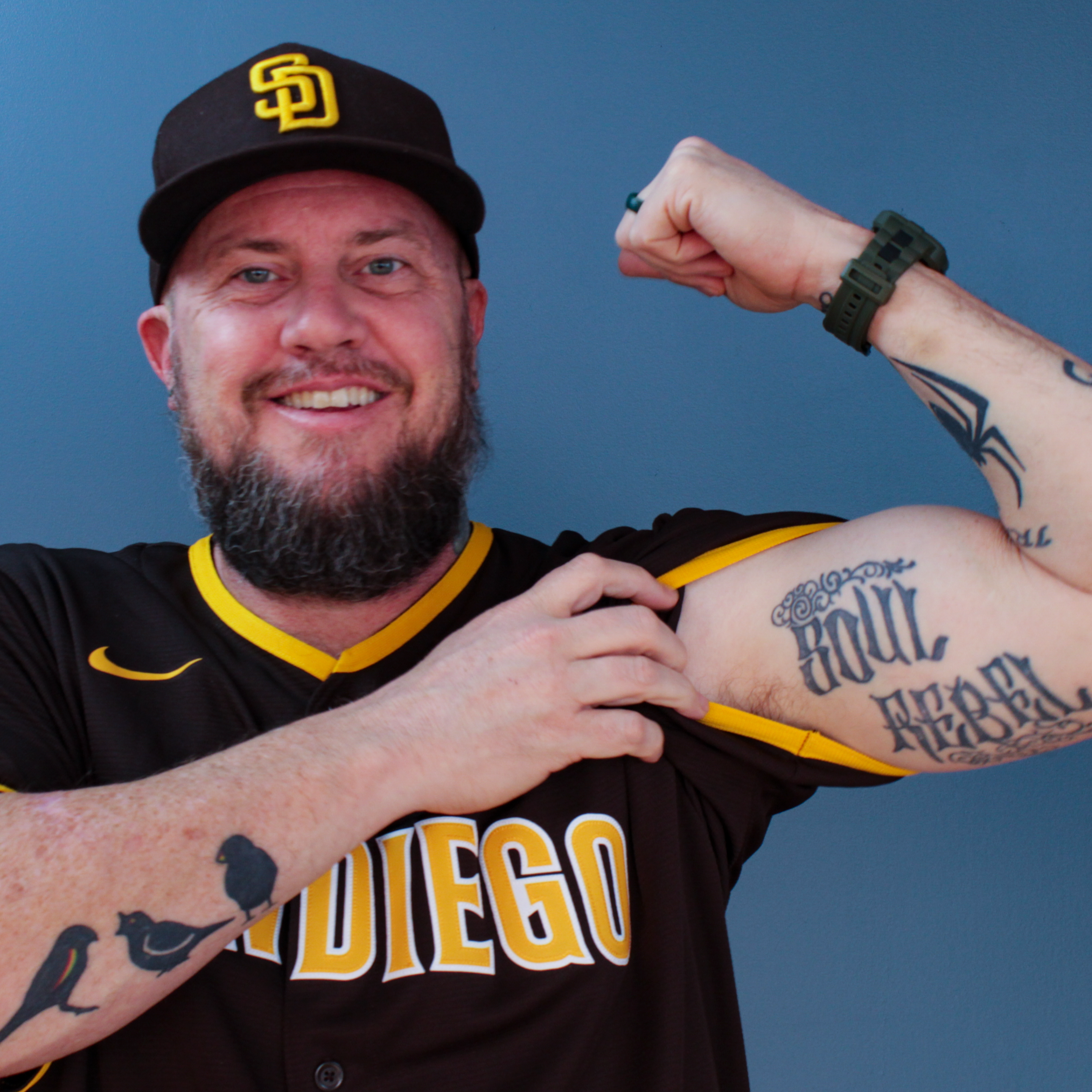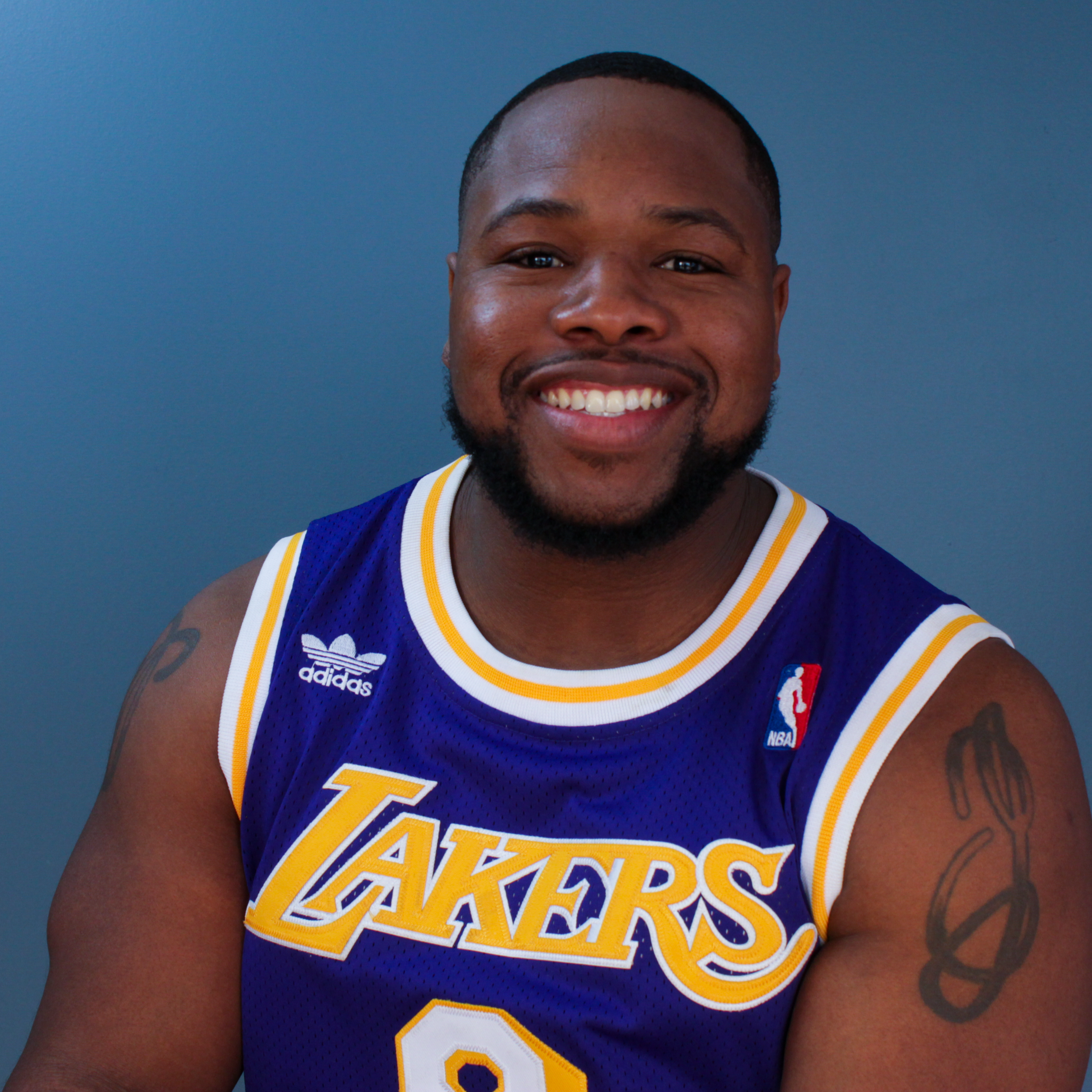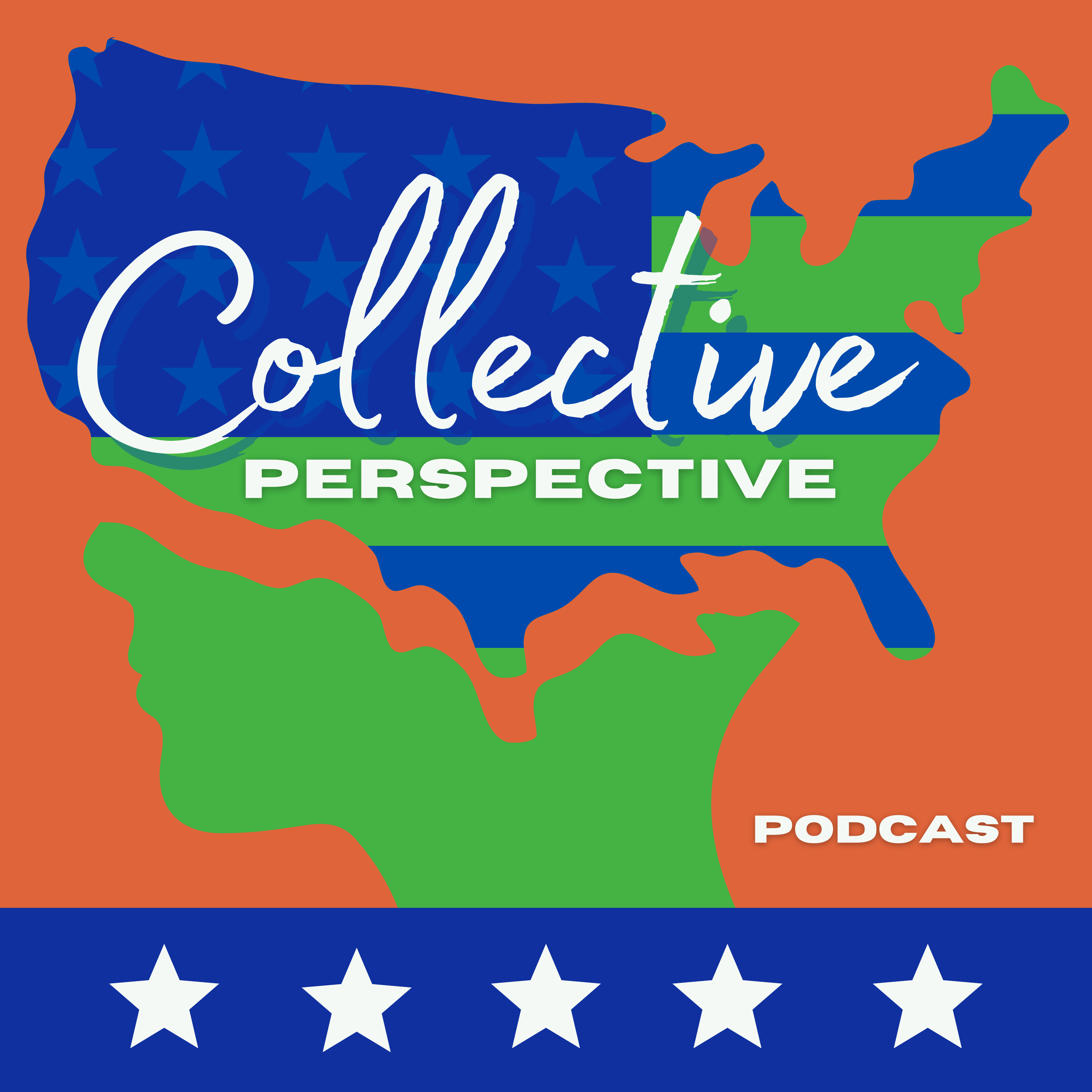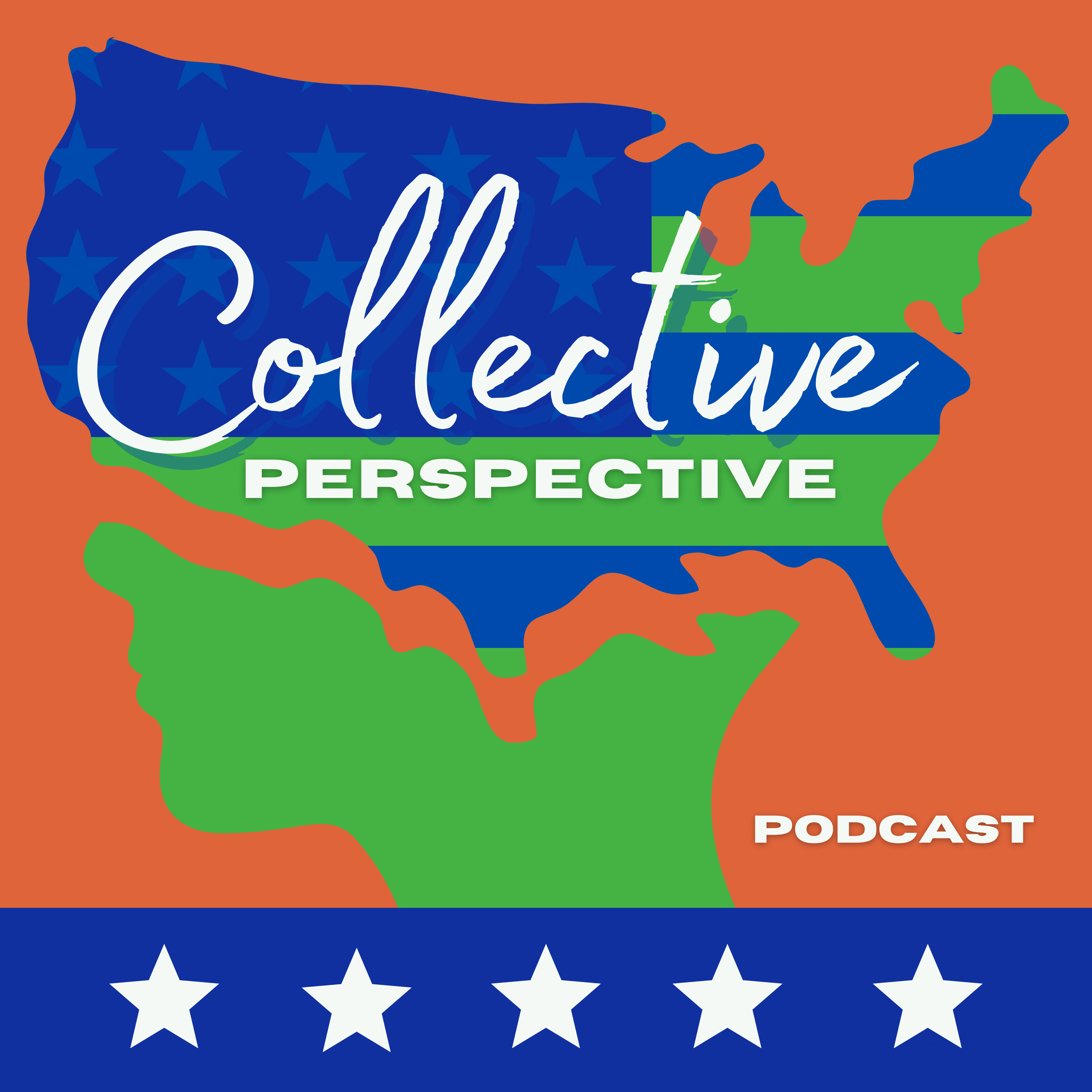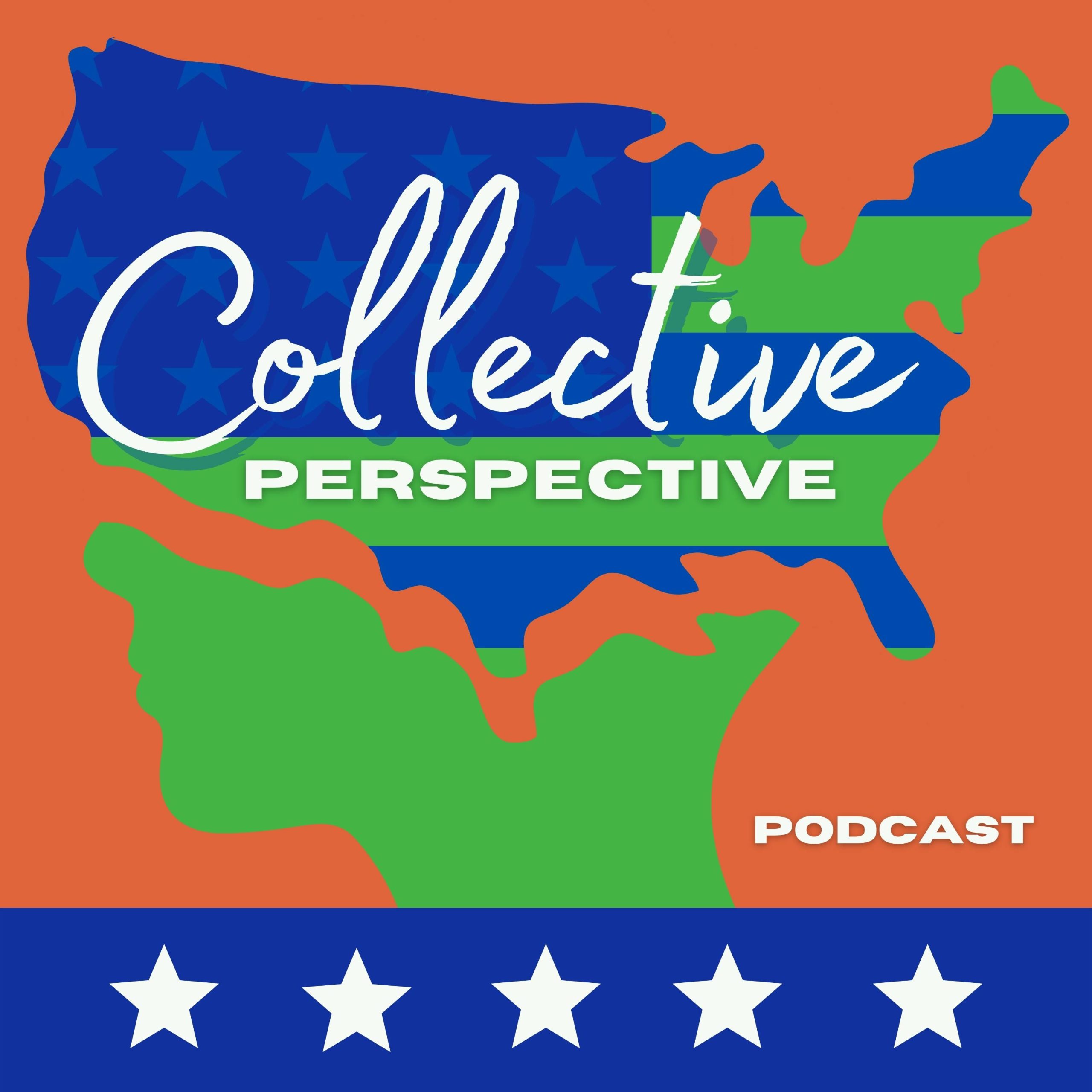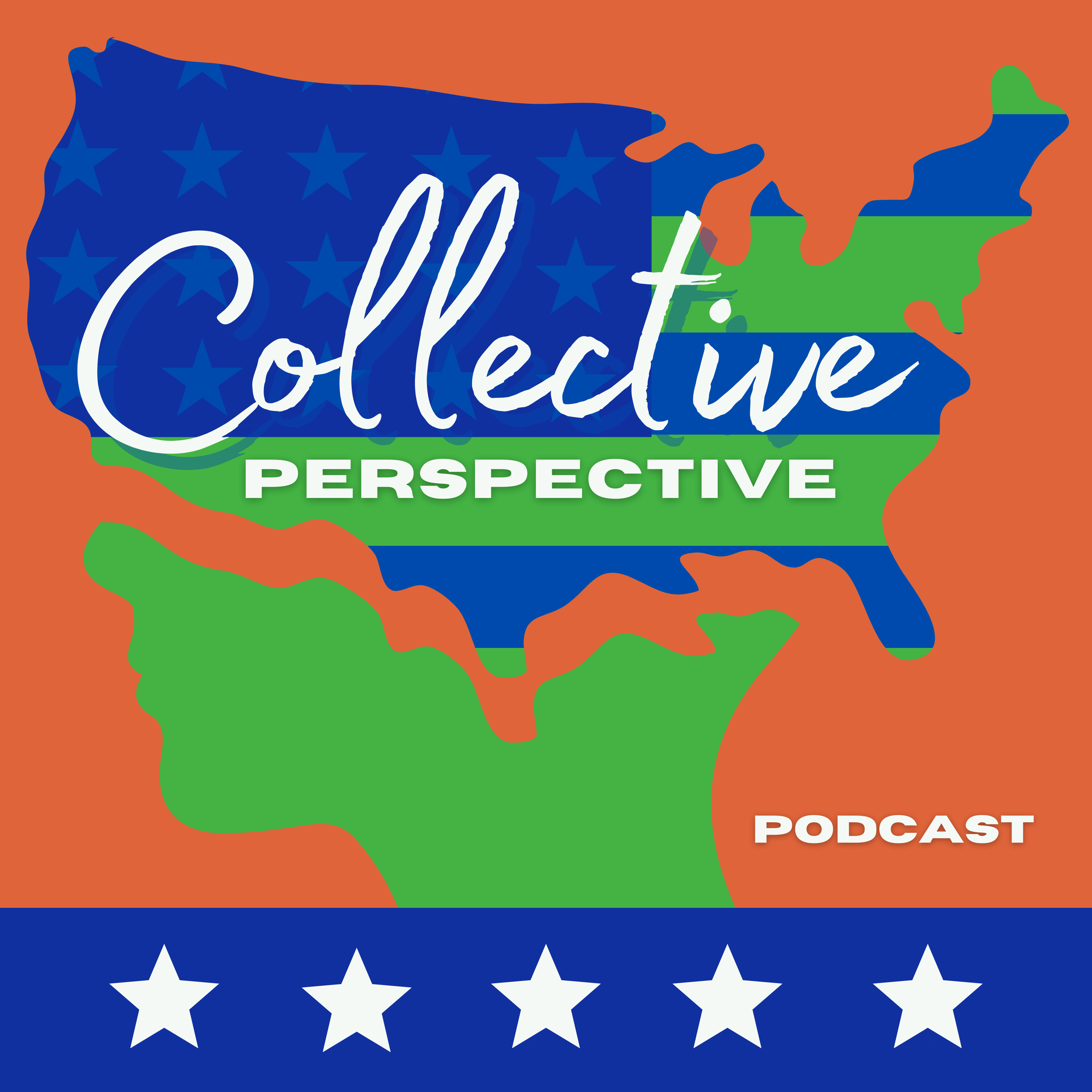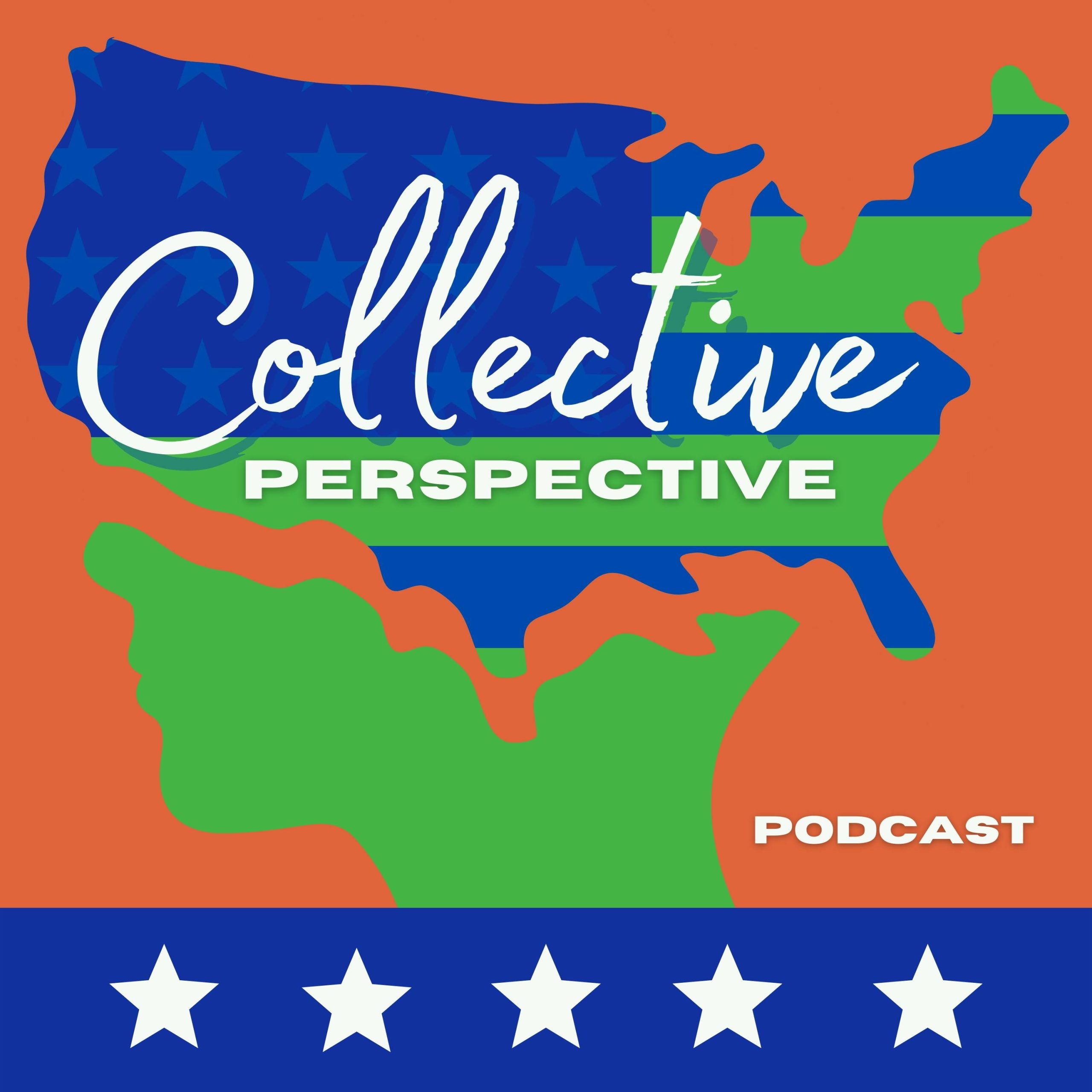Episode Transcript
This isn't just a podcast, it's a reminder. A reminder of what makes America Stronger isn't the headline or a hashtag. It's people from the ones building our homes to the ones rebuilding their lives, veterans, tradesmen, neighbors and volunteers, real people doing real things. Here we find common ground first, and then we work on our differences.
This is the collective perspective podcast where purpose, people, and progress. Buddy, welcome back to the Collective Perspective podcast. My name is Jeff and I'm here with my co-host Travis. What's up, Trav? Hey, what's going on Jeff? Welcome back, everybody. Glad to be here and, uh, can't wait to see what's in store for this episode.
Well, today we have the topic, kindness. Now, we're not trying to teach anybody here anything. Well, maybe we are, but if anything, we're. We're actually, uh, Travis and I are actually getting more out of this than maybe, maybe you, uh, but it's teaching us more about today. We're gonna talk about kindness and different types of kindness, and if it's good, bad weakness, strength, well, what is kindness?
A lot of people don't really dig into the meaning of, uh, the word, but there is passive and active kindness. And passive kindness is, uh, more like, uh, writing happy birthday on someone's timeline or just giving a a, a. A word of praise to somebody. It requires very little effort and you don't have to really invest a whole lot into it.
It, it really takes hardly anything at all. To be nice and kind to somebody, just a couple of good positive words to 'em, it will, can really change someone's day, man. You'd be surprised, uh, how much just a smile would do for someone or opening the door for them or. Uh, just thinking positive thoughts. Maybe someone's having a bad day.
You're just like, Hey, uh, I'm thinking positive thoughts for you. I, I'm, I'm praying for you. I want you to have a great day. And it requires little energy from you other than just being praiseful or kind to them. That's it. And let's face it, getting a hug or a kiss from your loved one saying goodbye or at any time for that moment, uh, for that matter is, is also that.
And then, then we have the active kindness. Active kindness is actually going out of your way, uh, to do something. For someone to give someone 20 bucks, you know, a homeless person, 20 bucks, uh, or to bake that cake for that birthday person, you're, you're expending more energy. You're doing more things to show an act of gratitude or kindness for somebody.
And both are equally effective at uplifting someone's day, I think. Uh, previous episode, I, I had mentioned briefly about, uh, doing something nice for someone, a random act of kindness. And, uh, there's these, uh, clickbaits on social media that, uh, wants you to click on it or watch it over and over, and they're just random acts of kindness that are filmed.
So the other day I was at GATE and there was two gentlemen standing in front of me and one of them said, Hey man, I don't have the cash I thought I had. Do you have your card on you? And I said, Hey man, I believe in random acts with kindness. Let me just pay for it. So I paid for maybe $2 of mine and paid for his and his friend's drink.
And sure enough, he was my neighbor and he also shout out to Massey, uh, sprays my yard for bugs and stuff. Oh, that's pretty cool, man. That's really neat. Not only that, he goes, oh, hey, you're Jeff, right? And I said, yes. So he actually knew who I was. So. Man, I, I can't tell you how well, how more positive I was that day.
Uh, I, I, I believe it. Yeah. You get that one little boost of energy from doing something like that, or receiving, being on the receiving end, uh, of something like that. I think it gives you hope, uh, into what's going on, or that there's, there is hope for the future and that things are getting better. Well, it does more for.
Uh, I, I've been doing some research on it since then, and it does actually more than that. Uh, it increases the endorphins to even people that, that witness it. So not only was it the guy that worked for Massey, but his friend and the cashier, myself and my 4-year-old daughter all witnessed that and benefited from that kindness that's, uh, paying it forward in a way that you won't realize yourself.
Travis, I challenge you, uh, till the next podcast to go out there and do a random act of kindness every day. It's almost, uh, well, it's not random in my line of work, but you kind of have to be kind every day anyway. Well, outside of work, well, you're going to work intentionally to help people. Yes. So outta kindness Sure.
Uh, won't take that away from you, but. I'm talking a random act of kindness outside of work. Yeah. Okay. I'm not saying let's go to Publix and do something nice for someone. It just, and it's, it's not something for clickbait either. It's nothing that needs to be recorded. Anybody can do a random act of kindness and you know, if you do, comment below, tell us how it made you feel.
Tell us, uh, your experience with performing a random act of kindness. And I guarantee you that person will pay it forward too. So that's the great thing about kindness is that kindness is projected. Um, it, it, it is, uh, reciprocated Ly Reciprocated. Yeah. Reciprocated. Yes. Those are the words. Oh, and you've seen that?
I'm sure people have seen it, uh, previously. Um, someone going through a drive through line and paying for the meal for the person behind them, and then it kind of reciprocates or propagates behind that, and it keeps going down the line until somebody says, all right, yep, that's good. I'm not doing it anymore.
Now, you've all had, uh, I'm sure you've had someone in your life that kindness was, uh, seen, uh, as enabling. As enabling. Yes, I can. I, I, I. I can see that, yes, someone who's addicted to something and they're always trying to be kind and not wanting to hurt their feelings and tell 'em, Hey, you need to stop this.
You're killing yourself, or whatever it is. They just wanna be nice to 'em and see if it'll, if that'll change them. Maybe.
What if kindness wasn't rare, but it was expected?
I think there's places in society where it is as expected, right? Uh, can, can you give an example? Uh, kindness, um, if it was expected versus, uh, being rare. Wasn't rare but expected. I guess what I'm saying. If, uh, if kindness wasn't rare, but it was expected, then that would mean that everybody is doing something kind right.
I think so. Um, but you don't want to, there, there's a fine line between I guess being rare and being expected. Well, I don't know, maybe the balance between the two should, it should. I don't think it should be rare, but it shouldn't be expected either. Um, kindness is not for everyone. I mean, there are people that are just.
Not happy to the core or when they're in a, in a funk or in a depressed mood, they're just not gonna be kind. Well, what would you say about parents though? Are they expected to be kind all the time to their child? I, no, I don't think they are because of the discipline factor. Sometimes you have to be stern and not nice.
I mean, you know, it sucks when you have to ground a child or, uh, in some instances, a, a spanking to correct a, a very dangerous or, uh, severe, um, action or behavior. Here's an example. Uh, go ahead, sir. Uh, but yeah, being, uh, parents expected to be kind. Uh, no, they should be loving. Uh, and I, I, I, I think there is a little bit of differentiation there between kind and loving, uh, because you can still be kind, uh, you can still be loving, but, and, and discipline your children.
I think another thing too, and kind of something just ran randomly that happened to me today was, uh, took the kids, my wife was working, the kids took 'em to Costco. They were great, but Publix, they fell apart. Now they weren't like horrible, like throwing stuff and being belligerent. They were just joyful.
And actually women were walking by laughing and having a good time. But it was more of like, I don't see any other kids at the store doing this. One of the comments was, those are just some happy kids, and I was cool with that. But you know, there came a time where I was just being really kind and I said, Hey, you guys need to stop.
And it didn't stop. I was kind in public, but not when we got in the car. Yes, A time and place for discipline. A time and place there. There is a time and place for every, everything. Um, and you want to, I think, show the kindness in public. Yes. And discipline in private and that that, that, that's true for even work relationships, personal relationships, your intimate relationships.
You, you always, you don't want to show that, that, uh, discipline in public. I also don't think that the opposite of kind is mean. I think the opposite of kind could go different directions. It could be stern, it could be, uh, a. Strong strength. It could, uh, it could be the truth, it could be facts. You know, you may not like what I have to say, but here are the facts and I'm not being mean.
I think I'm actually doing you a service by giving you this information, even though it's bad. Well, and that kind of begs the question though. It's the perception of the act by both parties then, is that an, is that a kind act? Was that nice? Was it, was it, uh. More stern, but still imparted good, positive information.
What happens when kindness becomes culture? Ooh, that's a good question. When it's ingrained in the culture and everyone tries to be kind all the time, I don't know what would happen. What do you what? What do you guys think? Well, I mean, I don't know who you're talking to. I'm just kidding. He's talking to you.
Silly. Hey, if you have any comments or you want have any suggestions or you have just some, uh, criticism about the show, please let us know. You can email us. You can put it in a comments boil. That's what he is referring to. Sorry. Come on. What happens when kindness becomes culture? We gotta break the third wall every once in a while.
Fourth. Fourth, fourth wall. Yeah, it's the fourth wall. He's a Deadpool fan. Okay. Is that copyrighted? So if kindness becomes culture, um, I think there would be a lot more happiness in the world. I think, uh, a lot of it comes down to endorphins. And let's, let's face it, there's a huge mental crisis in the United States.
We're not gonna get too far down that topic, but. Um, I think random acts of kindness, just being kind. Um, I think the most important thing is people that see you be kind. It gives them an example. It gives them, um, it gives them exactly that. It gives, gives them an example of how to be kind and then they can do it themselves.
I don't think people are naturally mean. No, I, I, I agree. I don't think people are naturally mean. Uh, it's, it's part of, uh, nature and nurture type of upbringing. It comes down to me, you're being selfish, not be it. So you and I have talked about selfishness in the past, and I, I kind of, uh, I knew that was gonna be a trigger for you.
I don't think that that's a bad thing myself, but I digress. Well, I mean, being selfish. Uh, I mean, what is selfish? I think that might be a whole nother podcast. It, it could be we're talking about kindness. Kindness, kidding. But I mean, since the, since the topic came up, let's talk about it. Selfishness. Well, and how can a selfish person be kind?
Well, if it benefits me or my family, sure. Why not? Like I, I've said, I've said this about the selfish topic as well, but doesn't that just really come down to money though, is what you're talking about being No, no, no. Uh, what else would it be besides money? Money. Uh, money is something, because that's an exchange of, of, I I would say money is a big percentage of it.
It, it's a big percentage of anything we do, I think. But nobody's saying that you have to give money to be kind. Correct. Or, but so for me, being selfish is if it's gonna benefit me or my family and most interactions with people in the public will benefit me or my family. 'cause I don't know who you are or what you know, or what you do.
I may need your assistance sometime. So why would I burn a bridge before I even know that bridge is there? Say it again. Why would you burn a bridge before you even knew the bridge was there? I, I know that probably doesn't make sense, but what I'm saying is if I, if I'm not kind to everybody. On a daily basis, just my own personal, uh, habits.
And I, I, I meet somebody and I do something that's rude to say the AC repairman. I don't know that he's an AC repairman. And when he comes over and he and I, I, you know, I have a problem with an AC and I call somebody and he's the one that shows up. Guess what? He's already got a sour taste in his mouth.
'cause I did something bad late, earlier to him. And didn't even know it. So you, you don't want to burn that bridge before you get there. You know? That's what I mean by that. I agree. You, uh, kindness isn't just a soft emotion though. Kindness. Um, like we were talking passive and act of kindness is, or it's, it's a gesture, right?
Right. So if I'm actively going out and doing something on behalf of you, and, uh, that's an action. But if I'm just smiling at you, that's passive. Yes. Right. Um, that's what we're exploring next is because the world is full, full of what can I get? It's not what it, what have you done for me? It's what have you done for me lately?
We want to highlight those living out of, uh, the different question. What can I give?
Hey, you know, Kennedy said it in his speech. You know what can, don't ask what your country can do for you. Ask what you can do for your country. And that's not asking for some handout or anything. That's all right. What can I give? What can I do? I think he was, what he was alluding to was that the culture was leaning towards what can the country do for me?
What can you do for me versus what can I do for my country? Right? Yeah. It is asking what is the country gonna do for me because of, because of this blank reason. And, and that's whatever it is you fill in the blank or blanks. Yeah, that's true. So, hey, uh, this has been a fun conversation, Trav, about being kindness.
Yeah. Let's be kind and, uh, next we're gonna talk about. Coming, uh, going from, and next we're gonna talk about the consumer becoming
the contributor, sorry. And next episode we're gonna talk about the consumer becoming the contributor and how that pans out. That sounds interesting. Let's, uh, see what's next on that one. Hey everybody, thanks for listening to this episode of the Collective Perspective Podcast. Please like listen and follow and by all means share.
And we wanna hear from you. Uh, coming up, we're looking for contributors that we can interview. We're talking school teachers. Uh, janitors, pastors, any of those likes, people that contribute to society. That sounds like a great idea and I can't wait to see what kind of responses we get and let's see if we can have some, uh, fun with the interview and make it a little more educational for everybody.
I know, like Jeff said earlier, we get a lot out of this, probably more than the viewers right now, but hopefully in the future everybody will get some take. Can everybody. It can take something away from this. Hey everybody, thanks for listening. Um, again, whatever. Hey everybody, thanks for listening. Peace out.
